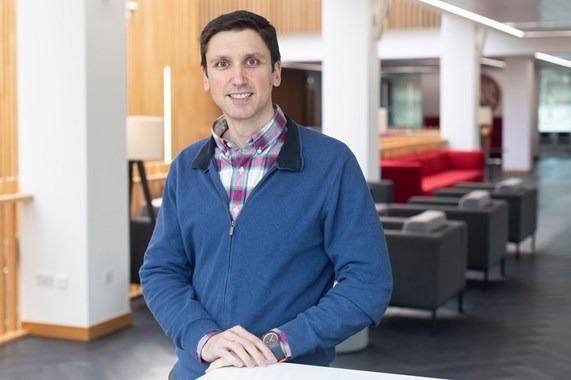Reviewed by Alex SmithApr 13 2022
A University of West Scotland (UWS) study will facilitate the creation of next-generation sensors that can save patients’ lives and change a variety of industrial operations.
 Dr. Carlos Garcia Nuñez. Image Credit: University of West Scotland
Dr. Carlos Garcia Nuñez. Image Credit: University of West Scotland
The Royal Society recently donated £20,000 to a research project aimed at developing hyper-efficient wireless, non-toxic ultrasonic sensors, which are utilized in equipment such as cardiac implants, biomedical imaging and proximity antennas on military vehicles.
Several existing sensors, although they are safe and reliable, involve lead in the manufacturing process. The UWS study will investigate piezoelectric metal oxides — materials that produce energy when stressed — as a possible substitute, not only improving gadget efficiency but also making them suitable for use in medical implants.
Ultrasonic devices have already demonstrated great potential for wireless energy transfer and are being widely applied in health monitoring, health care, wider industrial applications, and defense.
Milan Radosavljevic, Professor and Vice-Principal, Research, Innovation and Engagement, University of West Scotland
“The funding received for this project places UWS in a prime position to significantly impact the international research community. It is an exciting example of the innovative research underway at the University and highlights our commitment to impactful research that is directly aligned with the United Nations Sustainable Development Goals,” he added.
Dr. Carlos Garcia Nuñez of UWS School of Computing, Engineering, and Physical Sciences is directing the one-year study.
I’m delighted to receive funding for this project which has the potential to significantly impact the manufacturing of photonics, and optoelectronics, through a new concept known as a piezo-phototronic effect.
Dr. Carlos Garcia Nuñez, School of Computing, Engineering, and Physical Sciences, University of West Scotland
“Due to the growing environmental concerns of toxicity in lead-containing devices, there is a growing demand for developing lead-free materials. Using earth-abundant alternative materials is not only highly effective and safer, but it also provides a low-cost option,” Nuñez added.
The Royal Society offers several grant programs to help the UK scientific establishment and stimulate collaboration between the UK and international researchers. The Society collaborates with universities and businesses to encourage great scientists through its Research Fellowships and financing initiatives.